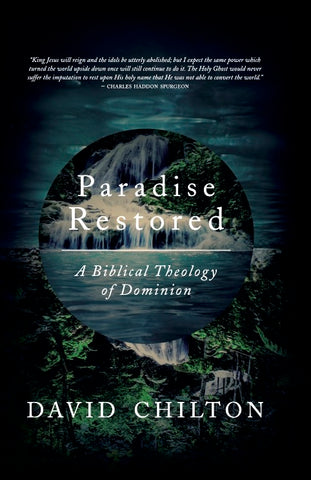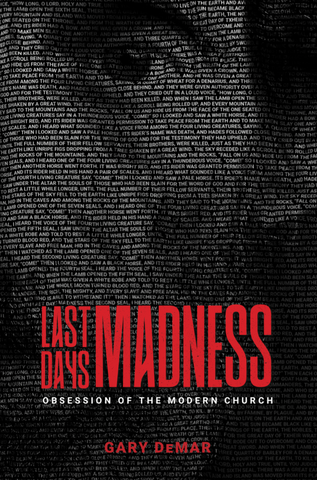(Note: This is Part Two of a series)
I grew up in the Pittsburgh area with a very large extended family. My mother was one of twelve and my father was one of eleven children. Both sets of grandparents lived nearby, and we visited them often. We were closer to my mother’s side of the family because they lived closer. After a get together with some of the family, this statement was made by two of my mother’s younger sisters, “Let’s get together someday,” or was it, “Let’s get together Sunday”? Confusion ensued when my mother’s sisters showed up, not some day, but Sunday!
Eschatology is about timing. If you get the timing wrong, what follows is also wrong. This is why the military uses a 24-hour clock. Do we attack at 7 AM or 7 PM? Military time is a synonym for the 24-hour clock. Any confusion is eliminated by using zero-seven hundred hours or nineteen-hundred hours.
The same is true when it comes to the Bible and the timing of events. If we misread passages that mention timing, we can be seriously wrong in our interpretation and application of prophetic events. The history of bad prophetic timing is a long one. One of the key elements of a preterist interpretation of when prophetic events will take place or have taken place is the meaning of words like “near,” “at hand,” “shortly,” “quickly,” and “long time.” The following is from Ron Rhodes’ new book Bible Prophecy Under Siege: Responding Biblically to Confusion About the End Times (Click here to read the first part of my critique):
Depending on the context, biblical words can carry different nuances of meaning—especially in New Testament Greek, which is a particularly rich language. Examples include “soon” (Greek: tachos) and “near” (Greek: eggus [pronounced engus]) as related to the fulfillment of Bible prophecy. Let’s consider the details. (91)
He then lists verses in Revelation that “indicate a ‘soon’ fulfillment of prophecy (Revelation 1:1, 3; 22:6, 6, 10, 12, 20).” Because preterists argue that Revelation was revealed to John “in the mid-60s AD,” therefore, “this ‘soon’ fulfillment must refer to AD 70, when Jesus ‘came’ in judgment against Jerusalem through the Roman army.” (91-92)
Rhodes does a good job in describing the preterist position. He quotes Hank Hanegraaf, Kenneth Gentry, and me. He could have quoted many others going back centuries, but he does not. It’s not like we’re the only three people who hold or held the preterist position. We didn’t just make it up sometime in the 20th century. Not surprisingly, Rhodes turns to the early church for support for his view that he claims refutes the preterist argument. His first stop is the Didache that he argues “that dates to the end of the first century and the beginning of the second” (92). Let’s assume he is correct; this does not mean that the pre-trib position is correct. Far from it since pre-tribulationalism is a 19th-century invention.
In Didache 16, there are 12 references to Matthew 24-25 (24:4, 10-13, 21, 24, 30, 31, 42, 44, and 25:31). The crucial time text of Matthew 24:34 (“this generation will not pass away”) is not quoted, but a form of Matthew 24:30 is: “The Lord shall come and all His saints with Him. Then shall the world see the Lord coming upon the clouds of heaven” (16.7-8).
The verses quoted from Matthew 24-25 in Didache 16 obviously refer to future events from the perspective of the author(s). Of course, if the Didache was written prior to the destruction of Jerusalem in AD 70 then it supports preterism. The Didache is not Scripture and does not teach a pre-trib rapture prior to a seven-year time of tribulation. Moreover, the claim that it was written after AD 70 is not conclusive. In the authoritative work The Apostolic Fathers, we read the following:
A remarkably wide range of dates, extending from before A.D. 50 to the third century or later, has been proposed for this document…. The Didache may have been put into its present form as late as 150, though a date considerably closer to the end of the first century seems more plausible. The materials from which it was composed, however, reflect the state of the church at an even earlier time. The relative simplicity of the prayers, the continuing concern to differentiate Christian practice from Jewish rituals (8.1), and in particular the form of church structure—note the twofold structure of bishops and deacons (cf. Phil. 1:1) and the continued existence of traveling apostles and prophets alongside a resident ministry—reflect a time closer to that of Paul and James (who died in the 60s) than Ignatius (who died sometime after 110).[1]
The definitive work on the Didache was written by the French-Canadian Jean-Paul Audet who concluded “that it was composed, almost certainly in Antioch, between 50 and 70,”[2] “contemporary with the first gospel writings.”[3] Andrew Louth writes that many scholars would date the Didache “earlier than the New Testament itself.”[4] Aaron Milavec’s 1000-page study of the Didache also places its composition sometime between AD 50 and 70.[5]
One of my criticisms of Bible Prophecy Under Siege is that the scholarship is out of date. Rhodes uses sources from his own perspective and has not taken the time to consult works outside his pre-trib bubble. For example, there is no interaction with Jonathan Berneir’s Rethinking the Dates of the New Testament published in 2022. Bernier concludes that “1 Clement was written no earlier than 64 and no later than 70,” and that The Didache has a date range from “no earlier than 45 and no later than 125.”[6] In both cases, they could have been written before AD 70. This counters Rhodes’ assertion that “[i]t is telling that there are no first- or second century preterists that lend support to the ‘soon’ viewpoint of preterists.” (93) We need to keep in mind that there’s very little extant written material from the first century. The works of Josephus are a standout example of a secular historical sources that scholars have turned to understand the history of the Jews, including the events surrounding the destruction of Jerusalem. In his book Paradise Restored, David Chilton includes material in an appendix “Josephus and the Fall of Jerusalem.”

Paradise Restored
When it was first published three and a half decades ago, Paradise Restored helped to precipitate a massive paradigm shift in the Evangelical and Reformed world from abject pessimism to unabashed optimism. This new edition is more useful than ever. Newly re-typeset with multiple indexes, it will help a whole new generation grasp how deep, how wide, how strong, and how certain is the finished work of redemption in Jesus Christ.
Buy NowRhodes appeals to Justin Martyr who is just another non-biblical historical source, as is Eusebius (260/265-339) who argues for a preterist interpretation of the Olivet Discourse. Thomas Ice, who is quoted favorably by Rhodes, stated: “There is early preterism in people like Eusebius. In fact, his work The Proof of the Gospel is full of preterism in relationship to the Olivet Discourse.”[7] The works of the early church are a mixed bag. This is why dispensationalist John D. Hannah, Distinguished Professor of Historical Theology, Research Professor of Theological Studies at Dallas Theological Seminary, is honest enough to admit that it’s “not an easy task to piece together a picture of what early Christians thought about the end times…. [since] our sources for their thought in this area are relatively limited.”[8] While historical sources are interesting and sometimes helpful, the Bible is the standard.
One of the problems with his defense of pre-tribulationalism is that he relies on outdated works and worn out and refuted arguments. He’s counting on the fact that most readers will not spot what he’s left out and won’t be aware of counter arguments. Check out the “Notes” section of Bible Prophecy Under Siege. It is filled with support works from fellow pre-trib writers. He should have at least interacted with Jonathan Bernier’s Rethinking the Dates of the New Testament who is neither a pre-tribulationalist nor a preterist.
In the final analysis, we must evaluate words like “near,” “at hand,” “shortly,” “quickly,” and “long time” in terms of how the New Testament uses them. It surprised me that Rhodes did not use examples from Scripture to make his case on how these time words are used in other contexts. This is a major weakness in his arguments.
Rhodes writes, “If the preterist view is wrong, as futurists believe it is, then how is the word ‘soon’ to be interpreted?” (93) Good question. He offers some ways interpreters have tried to get around the obvious meaning of these time indicators by first appealing to someone from the 6th century who argued that “soon” must be interpreted in terms of “the timelessness and eternality of God.” (93), but God being timeless and eternal does not change the meaning of how these words are used in everyday communication in the NT. God is communicating to us in language we can understand. They aren’t special “prophecy words.”

Last Days Madness
In this authoritative book, Gary DeMar clears the haze of "end-times" fever, shedding light on the most difficult and studied prophetic passages in the Bible, including Daniel 7:13-14; 9:24-27; Matt. 16:27-28; 24-25; Thess. 2; 2 Peter 3:3-13, and clearly explaining a host of other controversial topics.
Buy NowAnother alternative he suggests is “that ‘soon’ is a relative term.” (94) Who says? Does the NT use tachos and engus as relative terms in other places in the NT. To support his claim, one would think that Rhodes would give us some examples. He doesn’t. He tells his readers what 19th-century Bible commentator Albert Barnes says, but Rhodes never demonstrates from specific verses where the words appear outside of Revelation. I can find many commentators who disagree with Barnes.
His next line of defense is to turn to Greek scholars. I’m OK with that initial approach, but there’s nothing in the definitions from the lexicons and dictionary that Rhodes mentions that supports his timelessness and relative claims. The three sources he uses state that the Greek word tachos means “quick,” “swift,” or “speedy,” “quickly,” and “speedily.” Here is Rhodes’ interpretation:
Given this, the word need not mean that the events in Revelation would occur soon from John’s vantage point (in the first century) but can simply mean that when the events first begin to transpire, they will unfold quickly, speedily, and swiftly. Hence, these words in Revelation refer not to soon events but to swiftly unfolding events.
“Can simply mean”? The question is, what do they mean in context? It’s true that tachos refers to speed. But tachos is never used alone in the sense of “that car is fast.” Tachos is always followed by some action. Let’s see if tachos and its cognates can be interpreted in “relative” terms and God’s “timelessness” in the following verses.
- Matthew 5:25: “Make friends quickly [ταχὺ] with your opponent at law while you are with him on the way, in order that your opponent may not deliver you to the judge, and the judge to the officer, and you be thrown into prison.” (Jesus didn’t say only to make friends, but to do it quickly or something worse may befall him.)
- Matthew 28:7-8: “‘And go quickly [ταχὺ] and tell His disciples that He has risen from the dead; and behold, He is going before you into Galilee, there you will see Him; behold, I have told you.’ And they departed quickly [ταχὺ] from the tomb with fear and great joy and ran to report it to His disciples.” (The entire point is to move fast with the report.)
- Luke 15:22: “But the father said to his slaves, ‘Quickly [ταχὺ] bring out the best robe and put it on him and put a ring on his hand and sandals on his feet.’”
- Luke 16:6: “And he said, ‘A hundred measures of oil.’ And he said to him, ‘Take your bill, and sit down quickly [ταχέως] and write fifty.’”
- Luke 18:8: “I tell you that He will bring about justice for them quickly [τάχει].”
- John 11:29: “And when she heard it, she arose quickly [ταχὺ], and was coming to Him.”
- John 11:31: “The Jews then who were with her in the house, and consoling her, when they saw that Mary rose up quickly [ταχέως] and went out, followed her, supposing that she was going to the tomb to weep there.” (Did she rise up quickly, thought about it for a time, and later went out?)
- John 13:27: “And after the morsel, Satan then entered into him. Jesus therefore said to him, ‘What you do, do quickly [τάχιον].’” (Does anyone believe that Jesus meant for Judas to take his time? Judas didn’t understand it that way.)
- Acts 12:7: “And behold, an angel of the Lord suddenly appeared, and a light shone in the cell; and he struck Peter’s side and roused him, saying, ‘Get up quickly [τάχει].’ And his chains fell off his hands.” (Should we read this as, “When Peter decides to get up, he’ll do it quickly”? Impossible, since he was to follow the angel out of the prison past the guards.)
- Acts 22:18: “and I saw Him saying to me, ‘Make haste [Σπεῦσον], and get out of Jerusalem quickly [τάχει], because they will not accept your testimony about Me.’” (No delay is intimated.)
- Acts 25:4: “Festus then answered that Paul was being kept in custody at Caesarea and that he himself was about to leave shortly [ἐν τάχει].” (He left shortly.)
- Romans 16:20: “The God of peace will soon [τάχει] crush Satan under your feet.”
- Galatians 1:6: “I am amazed that you are so quickly [ταχέω] deserting Him who called you by the grace of Christ, for a different gospel.” (There’s nothing relative in this use of quickly, otherwise Paul’s statement would have been meaningless.)
- Philippians 2:19: “But I hope in the Lord Jesus to send Timothy to you shortly [ταχέως], so that I also may be encouraged when I learn of your condition.” (“Hope deferred makes the heart grow sick…” [Prov. 13:12]).
- Philippians 2:24: “and I trust in the Lord that I myself also shall be coming shortly [ταχέως].” (How would the Philippians have understood Paul’s use of “shortly”?)
- 2 Thessalonians 2:2: “that you may not be quickly [ταχέως] shaken from your composure or be disturbed either by a spirit or a message or a letter as if from us, to the effect that the day of the Lord has come.” (The point of Paul’s admonition is that certain beliefs were being quickly jeopardized.)
Did you notice that a specific action followed the use of tachos in each of the verses listed above? Since this is an established fact, why is tachos (often translated as “soon”) understood in a different way in Revelation 1:1 and 22:6? And what about 2:16, 3:11, 11:14, 22:7? Rhodes will argue that some of the events in the early chapters happen soon, but based on Revelation 1:19, some events take place “after these things.” As was pointed out above, the Greek word mellō is used. Mellō is also used in 2:10: “Do not fear what you are about to suffer….” The things that were to follow “the things which are” (happened at the time Revelation was written and shown to the seven historical churches) were “about to take place” (1:19). It’s regrettable that mellō is not translated in 1:19 when it’s translated in 2:10 as “about to.” Why is that? Because the implications of events that were “about to happen” in Revelation do not fit the futurist’s interpretation that those prophetic events are still unfulfilled.
[1] Michael W. Holmes, ed., The Apostolic Fathers: Greek Texts and English Translations, rev. ed. (Grand Rapids, MI: Baker Books, [1992] 1999), 247-248. Emphasis added.
[2] John A. T. Robinson, Redating the New Testament (Philadelphia: Westminster Press, (1976), 323.
[3] Jean-Paul Audet, La Didachè: Instructions des Apôtres (Paris: Gabalda, 1958), 187-210.
[4] Andrew Louth, Early Christian Writers (London: Penguin Books, 1968), 189.
[5] Aaron Milavec, The Didache: Faith, Hope, and Life of the Earliest Christian Communities, 50-70 C.E. (Mahwah, NJ: Paulist Press, 2003). Also see E. Earle Ellis, The Making of the New Testament Documents (Boston: Brill Academic Publishers, 2002), 55. For more information on the Didache and other early church documents related to preterism, see Gary DeMar and Francis X. Gumerlock, The Early Church and the End of the World, 2nd ed. (Powder Springs, GA: American Vision, [2006] 2004), chap. 3.
[6] Jonathan Berneir, Rethinking the Dates of the New Testament: The Evidence for Early Composition (Grand Rapids: Baker Academic, 2022), 250-251.
[7] Thomas Ice, “Update on Pre-Darby Rapture Statements and Other Issues”: audio tape (December 1995).
[8] John D. Hannah, Our Legacy: The History of Christian Doctrine (Colorado Springs, CO: NAVPRESS, 2001), 305.

